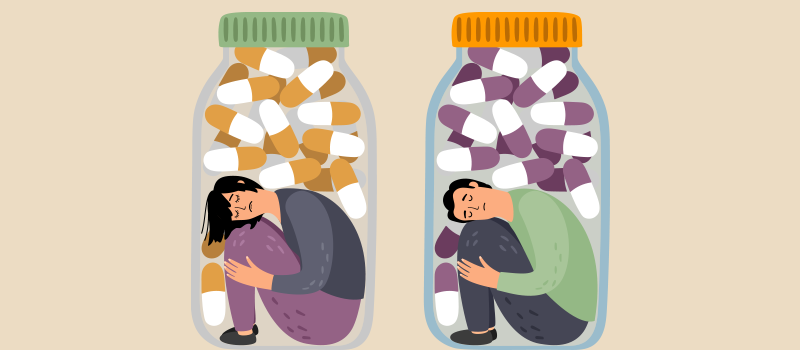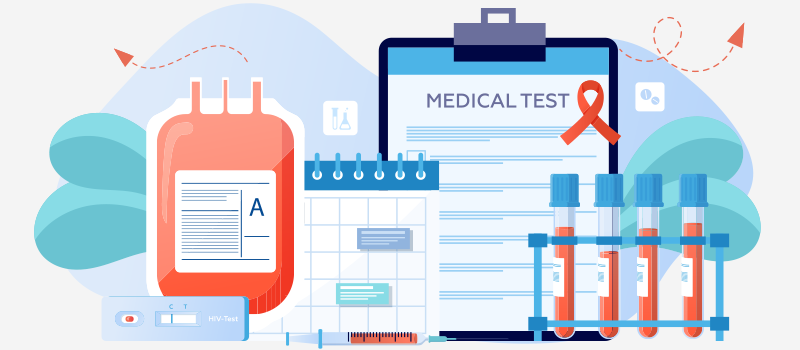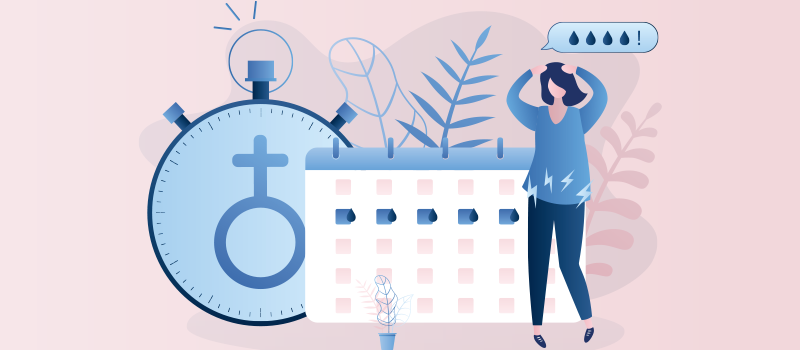What’s the Buzz
The Bee Healthy Blog
Zoloft vs. Prozac: Which is Right for Me?

If you’ve been diagnosed with depression or other mental health conditions such as obsessive-compulsive disorder (OCD), post-traumatic stress disorder (PTSD), or panic disorder, your healthcare provider may prescribe an antidepressant medication to treat your symptoms. A common category of antidepressants is called selective serotonin reuptake inhibitors or SSRIs. Two of the most widely prescribed antidepressants, Zoloft and Prozac, are both SSRIs. This article will explain how Prozac and Zoloft work, their similarities and differences, and other information you should be aware of before using either medicine. Please continue reading to find out Prozac vs. Zoloft: Which one is right for me?
What are Zoloft and Prozac? What do they treat?
As noted, Zoloft and Prozac are both antidepressant medications that belong to a class of drugs called selective serotonin reuptake inhibitors (SSRIs). Even though they are in the same drug class, they are not the same medication. Zoloft contains the active ingredient sertraline hydrochloride, while Prozac contains fluoxetine. Both medications are FDA-approved to treat major depressive disorder and other mental health conditions such as obsessive-compulsive disorder (OCD), panic disorder, and premenstrual dysphoric disorder (PMDD). These medications may also be used off-label to treat generalized anxiety disorder, social anxiety disorder, post-traumatic stress disorder (PTSD), and eating disorders like bulimia nervosa.
Do Prozac and Zoloft do the same thing?
Both Prozac and Zoloft work in the same way. They are SSRIs or selective serotonin reuptake inhibitors. Meaning, these medications prevent the reuptake of a brain chemical (neurotransmitter) called serotonin. Serotonin is a chemical messenger in the brain that stabilizes mood, produces healthy sleeping patterns, and enhances feelings of wellbeing and happiness. By preventing the reuptake of serotonin, Zoloft and Prozac make more serotonin available in the brain, thereby boosting mood, regulating emotions, and relieving depression. Notably, SSRIs like Prozac and Zoloft do not help the body make more serotonin - they only allow the body to use what it has more effectively.
Zoloft and Prozac Similarities
Here are the key similarities between Zoloft and Prozac:
- Both are prescription drugs that belong to a category of medications called selective serotonin reuptake inhibitors (SSRIs).
- Both are available in brand name and generic forms - Zoloft (sertraline) and Prozac (fluoxetine).
- Both are FDA-approved to treat major depressive disorder, obsessive-compulsive disorder (OCD), and panic disorder.
- Both Zoloft and Prozac are intended for long-term treatment (the length of treatment depends on the condition being treated) of the above mental health conditions.
- The common side effects of Zoloft and Prozac are similar. Zoloft and Prozac may cause nausea, diarrhea, indigestion, constipation, dry mouth, fatigue, dizziness, sleepiness, insomnia, tremors, loss of appetite, weight loss, weight gain, and decreased libido. Taking with food can alleviate nausea for both medications. Taking an SSRI at bedtime can also reduce the risk of nausea, as long as you don’t experience insomnia.
- Both Zoloft and Prozac have similar drug interactions. They can interact with monoamine oxidase inhibitors (MAOIs) and St John’s Wort, among others. MAOIs and St. John’s Wort are also used to treat depression. This type of drug interaction can cause serotonin syndrome where your body has too much serotonin. Signs and symptoms of serotonin syndrome are agitation, fever, excessive sweating, tremor, confusion, rapid heart rate, and major fluctuation in blood pressure. You should seek emergency medical care if you experience any of these symptoms.
- You should tell your doctor if you are pregnant, planning to get pregnant, or breastfeeding while on an antidepressant medicine—Prozac and Zoloft can cause problems in newborn babies if they are taken during the last few months of pregnancy. Do not stop taking the medication without discussing the risks and the benefits with your doctor first.
- Both medications are typically covered by insurance.
Prozac and Zoloft Differences
Here are some of the main differences between Prozac and Zoloft:
- Zoloft (sertraline) and Prozac (fluoxetine) contain different active ingredients.
- Zoloft is available as an oral tablet (25 mg, 50 mg, 100 mg) and oral solution (20 mg/mL). Prozac comes as a delayed-release oral capsule (90 mg), and immediate-release capsule (20 mg, 30 mg, 40 mg).
- Brand name Zoloft is made by the pharmaceutical company Pfizer. Brand name Prozac is manufactured by Eli Lilly.
- The typical maintenance dose of Zoloft (sertraline) is 50 mg per day. The usual maintenance dose of Prozac (fluoxetine) is 20 mg per day.
- Zoloft is prescribed to adults. It is also given to children 6 years of age or older for obsessive-compulsive disorder (OCD). Prozac is used to treat major depressive disorder in adults and children of at least 8 years of age.
Is Zoloft or Prozac better for panic attacks?
Both Prozac and Zoloft can be used to treat panic attacks. You should work with your doctor and follow their advice, diagnosis, or treatment for panic attacks.
If you also have PTSD or social anxiety disorder, Zoloft may be the preferred therapy because Zoloft is approved to treat these conditions in addition to panic disorder. Prozac is used off-label (not FDA-approved) for the treatment of social anxiety disorder and PTSD.
Is Zoloft or Prozac better for obsessive-compulsive disorder (OCD)?
Prozac and Zoloft are both effective in treating obsessive-compulsive disorder (OCD) in adults. However, Zoloft may be prescribed to children 6 years of age and older for OCD. Prozac is used in children 8 years of age and older to treat depression.
Which is more effective, Prozac or Zoloft?
Prozac and Zoloft have been found by double-blind clinical trials to be equally effective in treating depression. The drugs were found to significantly improve symptoms of depression, anxiety, and sleep disturbances when measured on different depression scales. However, one randomized controlled trial found that 19.6% of patients discontinued Prozac (fluoxetine) due to therapy failure (no improvement in symptoms). In contrast, only 9.6% of patients discontinued Zoloft (sertraline) due to ineffectiveness. This would suggest that Zoloft has an advantage over Prozac. Nonetheless, it is best to work with your healthcare provider to determine which antidepressant medicine is best for you. Your doctor will perform a comprehensive examination then decide on a treatment that is best for you based on your symptoms, coexisting medical conditions, and personal preferences.
Which is safer, Zoloft or Prozac?
While both SSRIs, Prozac, and Zoloft, are effective, studies show that Zoloft is likely to cause fewer and less severe side effects. Also, while SSRIs do not have a direct severe interaction with alcohol, it is recommended to limit your alcohol intake because of the increased risk of excessive drowsiness as a side effect when alcohol and antidepressants are taken together. It is also worth noting that Zoloft and Prozac may both cause serious side effects such as rash, hives, swelling, difficulty breathing, confusion, memory problems, agitation, hallucinations, sweating, and fast heartbeat. Call your doctor or healthcare provider immediately if you experience any of these adverse effects while on SSRI treatment.
SSRIs, along with other classes of antidepressants, are generally safe. However, they all carry a black-box warning, which is the strictest warning of prescription medication per FDA requirements. For all antidepressants, including SSRIs, during the first few weeks of therapy, children, adolescents, and adults younger than 25 years of age may have increased suicidal thoughts and ideation. Close monitoring and check-ins are very important during this treatment period. If you or someone that you know experiences worsening depressive symptoms, or has an increase in thoughts of self-harm, please get emergency help if the doctor cannot be contacted immediately. Keep in mind that in the long run, the right antidepressant will provide long-term benefits by boosting your mood, thus improving your quality of life.
References:
1. https://medlineplus.gov/druginfo/meds/a697048.html









SOCIAL